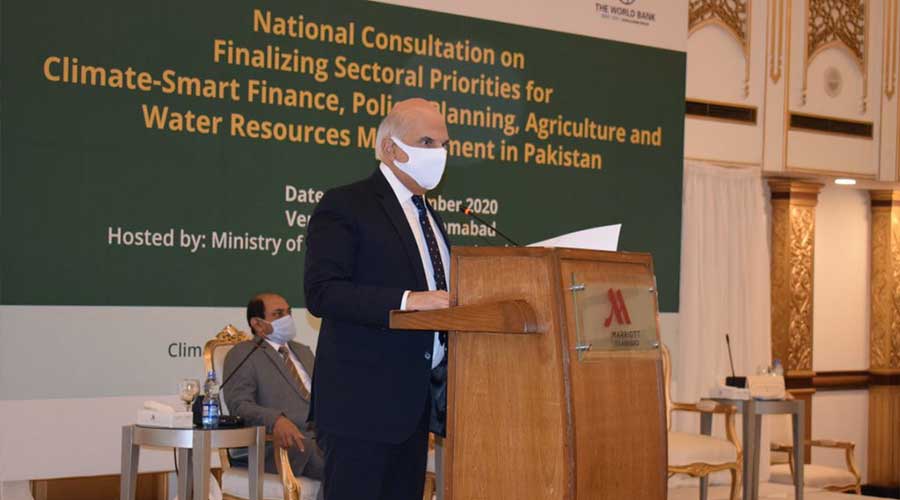Planning Commission Deputy Chairman Mohammad Jehanzeb Khan declared that Pakistan has tremendous potential to overcome the hurdles caused by climate change and it has the capability to achieve goals that can pertain to climate smart development.
On Monday, Planning Commission Deputy Chairman expressed his views while speaking at a two-day seminar on “National Consultation on Finalizing Sectoral Priorities for Climate-Smart Financing, Policy, Planning, Agriculture and Water Resources Management in Pakistan” which was organized with the financial support of the World Bank where he emphasized that the only set of attributes needed was careful analysis, comprehensive planning, and vigorous efforts.
Speaking on occasion, Deputy Chairman Planning Commission Dr Jehanzeb Khan said that problems related to #climate_change have a critical impact on #development. The problems are not only complex but also interlinked, therefore require an in depth understanding of the issues. pic.twitter.com/FI8xWa6dAr
— M/o Planning Development & Special Initiatives (@PlanComPakistan) November 9, 2020
The regional project “Climate Adaptation and Resilience (CARE)” for South Asia has been prepared which would facilitate technical support to the government of Pakistan for climate-smart agriculture and integrated water resources management by improving the availability of data and knowledge, developing guidelines, tools, and capacities, promoting climate-resilient decisions, policies and investments.
He further said that the project enables us to analyze the impact of climate change on agriculture and water resources management. He added that these interventions would enhance agricultural productivity and ensure efficient water conservation and management at national and provincial levels.
Moreover, the five-year (2020-24) project would help decision-makers visualize and absorb scientific information, said the deputy chairman. He added that climate change had already increased the frequency and intensity of floods, droughts, and heatwaves in Pakistan.
He considered the project helpful for visualizing and absorbing scientific information for including climate adaptation in the development planning process at both federal and provincial levels.
He also said, “Erratic rainfall, fluctuating temperatures, and water scarcity can harm agricultural productivity, compelling the government to divert economic resources to import of essential grains.”
The DCPC thanked the World Bank for the timely start of this project, as well as the World Bank’s long-term engagement with Pakistan on climate resilience, including floods and drought mitigation.





















